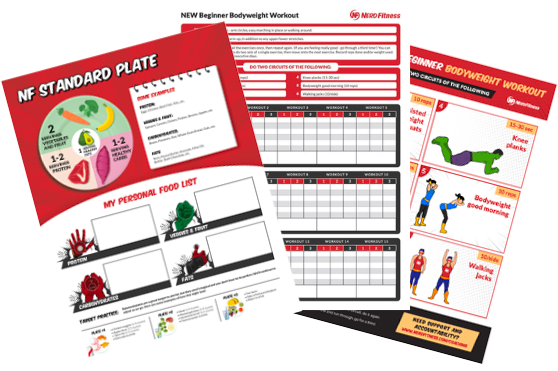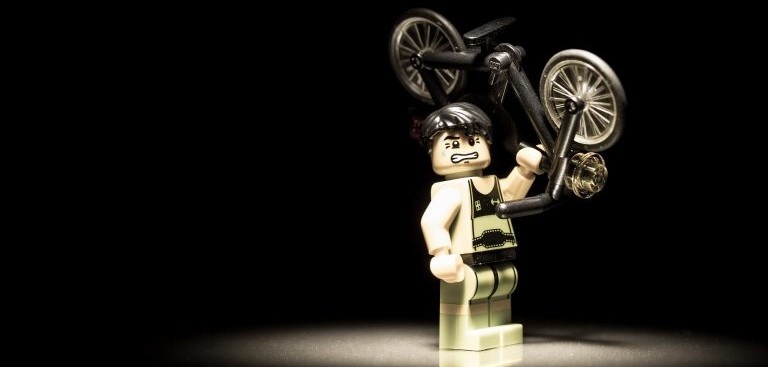
So you want to know about protein, eh?
Great! In part one of our Ultimate Guide to Protein, we’re gonna dig into everything you need to know about this super important macronutrient.
Whenever we speak with new Online Coaching Clients, protein is the macronutrient we begin every discussion with! It’s THAT important when it comes to either weight loss or building muscle.
Here’s what we’ll cover in this guide (click to jump to that part):
- What are the best sources of protein?
- How much protein do I need to eat every day?
- When is the best time to eat protein?
- Should I take a protein supplement?
- Protein and strength training: best combo ever?
What are the Best Sources of Protein?
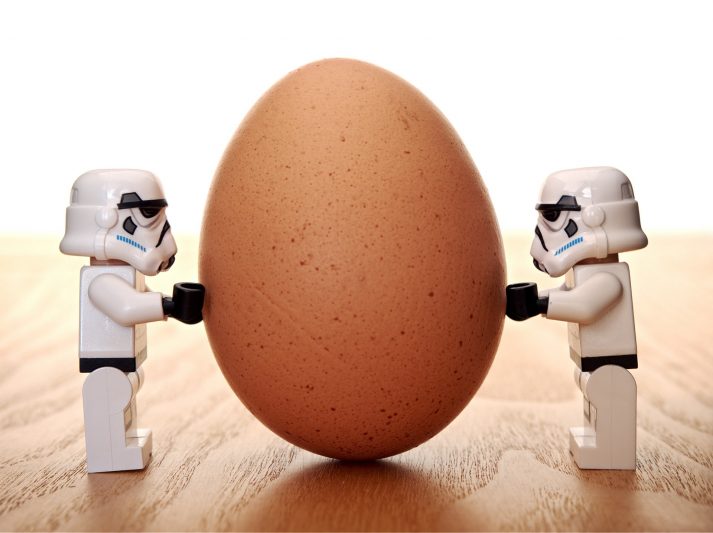
Protein is amazing.
Your body uses protein to rebuild your muscles and keep you strong, especially if you are exercising or strength training regularly.
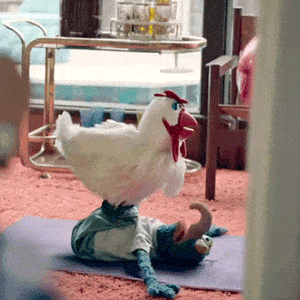
Protein is both good for you AND satiating without being a calorie bomb.
Protein can come from any number of whole food sources, including:
- Meat (steak, bison, pork).
- Fowl (chicken, turkey, duck).
- Eggs![1]
- Fish and shellfish (salmon, tuna, shrimp).
- Legumes (black beans, chickpeas).
Not a meat-eater? Read our massive plant-based guide!
A serving of protein is about the size and thickness of your palm.
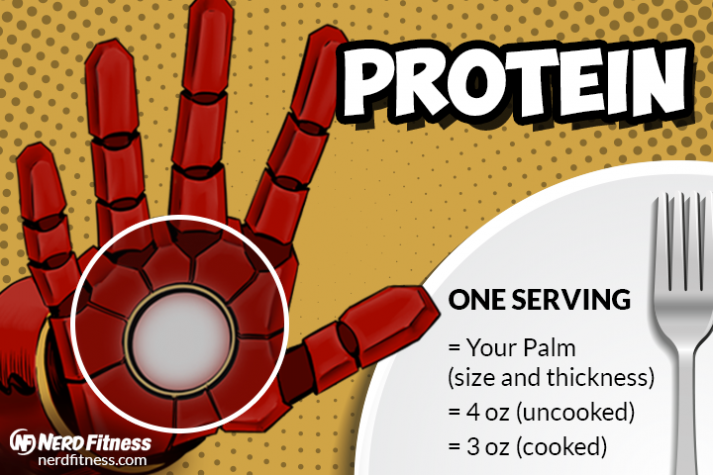
*The 4 oz serving is for an uncooked piece of meat. Cooking reduces about 25% of the weight, bringing it down to about 3 oz.
When building a plate, aim for the following amount of protein:
- Dudes: 1-2 servings (6-8 oz or about 170-228 g): two palms
- Dudettes: 1 serving (3-4 oz or about 85-114 g): 1 palm.
If you’re curious, here’s how much protein is in a serving of food:
- 4 oz (113 g) serving of chicken has around 30 g of protein.
- 4 oz (113 g) serving of salmon has 23 g of protein
- 4 oz (113 g) of steak has 28 g of protein.
As we cover in our “how to start eating healthy” guide, protein should be PART of a balanced plate:
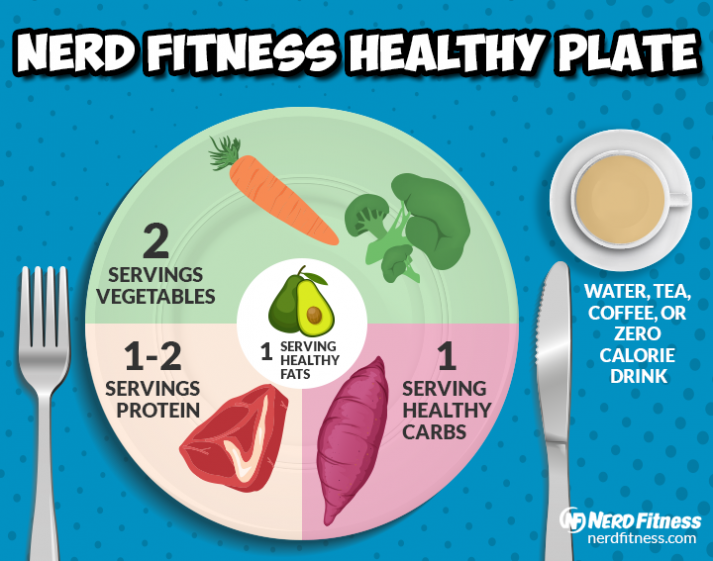
How Much Protein Do I Need to Eat Every Day?
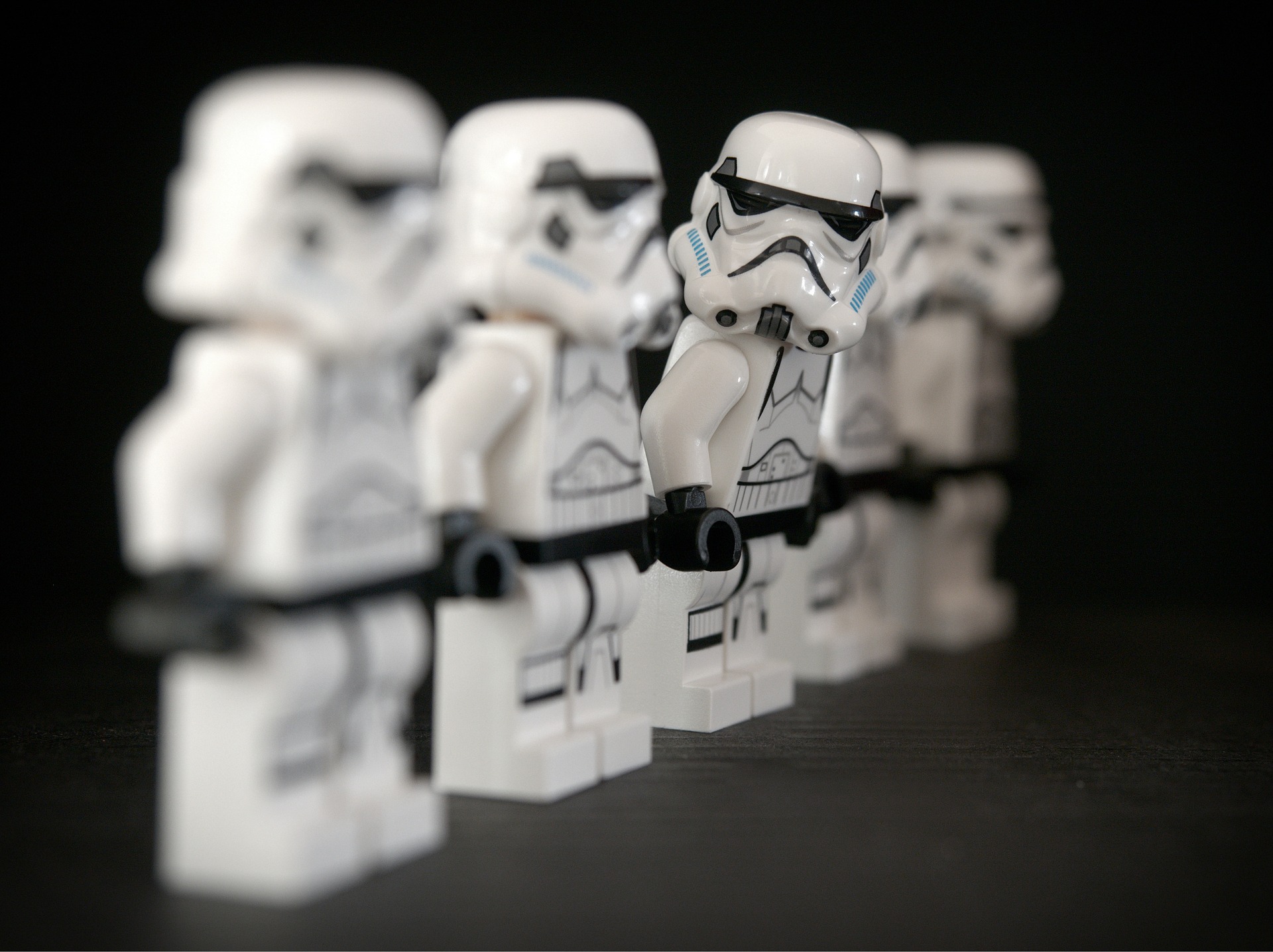
Claims for the amount of protein needed vary wildly from source to source (and athlete to athlete, and nerd to nerd).
You are a unique snowflake and your protein requirements should be aligned with your goals.
You want specific numbers, right?
The current international Recommended Dietary Allowance (RDA) for protein is 0.4g per pound of bodyweight (0.8 g per kg of body weight):[2] Case closed?
Nope.

In our opinion, and as pointed out by this study[3] the RDA for protein is too low and should be higher regardless of your body composition.
You just want me to tell you how much to eat, right? I figured.
Well, you’re in luck, because we have a protein calculator you can play with!
THE NERD FITNESS PROTEIN CALCULATOR
Let’s explain some of this a little.
As Examine.com points out in their heavily researched summary on protein:[4]
If you’re overweight or obese, aim for 0.54–0.68 g/lb (1.2–1.5 g/kg). You do not need to try to figure out your ideal body weight or your lean mass (a.k.a. fat-free mass). Most studies on people with obesity report their findings based on total body weight.
If you’re of healthy weight, active, and wish to lose fat, aim for 0.82–1.23 g/lb (1.8–2.7 g/kg), skewing toward the higher end of this range as you become leaner or if you increase your caloric deficit (by eating less or exercising more).
If you’re of healthy weight, active, and wish to build muscle, aim for 0.64–1.09 g/lb (1.4–2.4 g/kg).
If you’re an experienced lifter on a bulk, intakes up to 1.50 g/lb (3.3 g/kg) may help you minimize fat gain.
These are starter numbers that you can experiment with as you see your body transform.

Can you eat TOO MUCH protein?
As Examine points out in its research on protein,[5]
“Higher protein intakes seem to have no negative effects in healthy people**,” so aim for the higher end of the spectrum depending on your goals and adjust from there.
**Of course, if you have specific kidney or medical issues with regards to protein intake, PLEASE go with your doctor’s recommendation for required protein consumption!
LONG STORY SHORT: Consuming protein is an important part of life for everybody, both the sedentary and the athlete:
- By consuming enough protein while bulking up, you can ensure muscle growth during a bulk with minimal fat gain.
- By consuming enough protein while eating a caloric deficit and strength training, you can maintain the muscle mass you have while losing body fat (you might even be able to build muscle while losing fat simultaneously).
I personally consumed a significant amount of protein (240g of protein per day at a bodyweight of 190 pounds) during a recent “lean out” phase, and it allowed me to cut bodyfat while getting stronger and without feeling hungry.
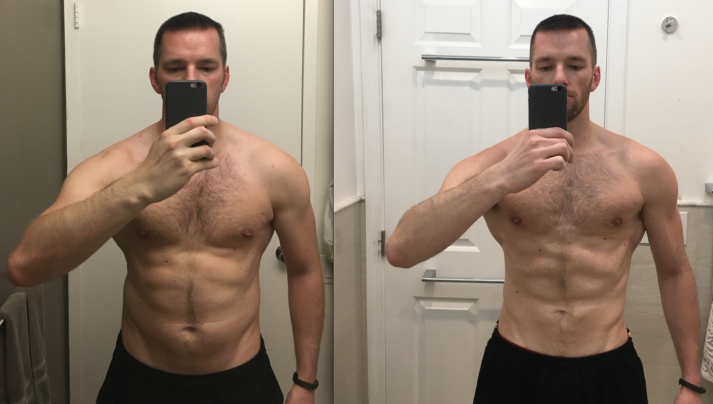
In summary, a major portion of your plate each day should be a source of protein.

You still need to have the right systems, the right nutritional strategy, and the right workout in place to put that protein to work!
To help busy people like you fix their nutrition and not waste time in the gym, we created our Online Coaching Program that might be a good fit for you.
When is the best time for me to eat protein in a day?
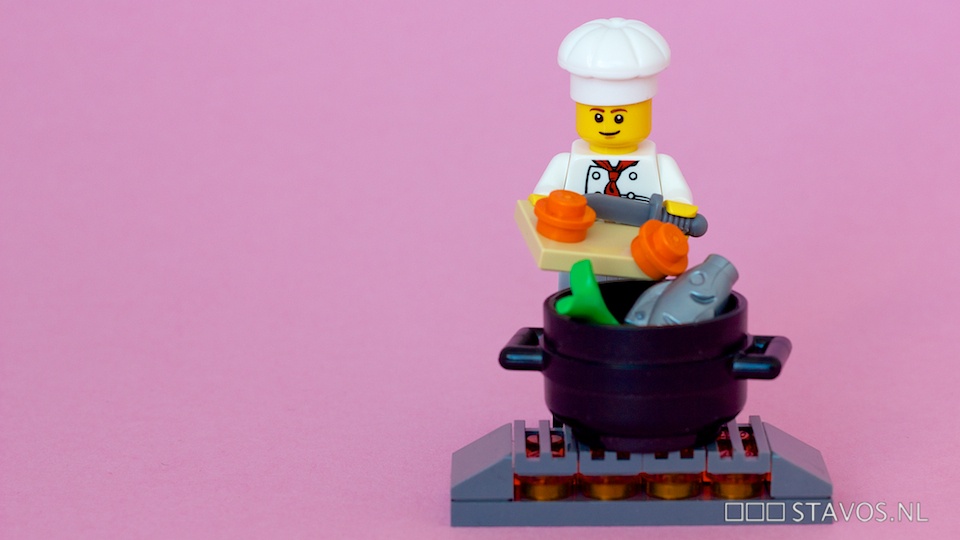
What you THINK the answer is: “You need to eat 30 grams of protein, no more or less, at equal intervals throughout the day in order to promote muscle growth!”
Here’s the actual answer:
According to this abstract:[6]
“In general, protein supplementation pre-AND post-workout increases physical performance, training session recovery, lean body mass, muscle hypertrophy, and strength. Specific gains, differ however based on protein type and amounts.”
And in this extract:[7]
“These results refute the commonly held belief that the timing of protein intake in and around a training session is critical to muscular adaptations and indicate that consuming adequate protein in combination with resistance exercise is the key factor for maximizing muscle protein accretion.”
WHAT THIS MEANS: The amount of protein you consume in a day is more important than the timing of your protein with regards to muscle building.
So eat protein when you want, either before OR after a workout. Just focus on TOTAL amount of protein consumed, in whatever time-frame works for you!

I do like the mental cue of “get 30g of protein with each meal,” as that tends to be 1 serving of a whole food protein.
Now, if you’re like me and targeting significantly MORE protein than the RDA minimum amount, supplementing with a protein shake could be beneficial!
Should I Take Protein Supplements?
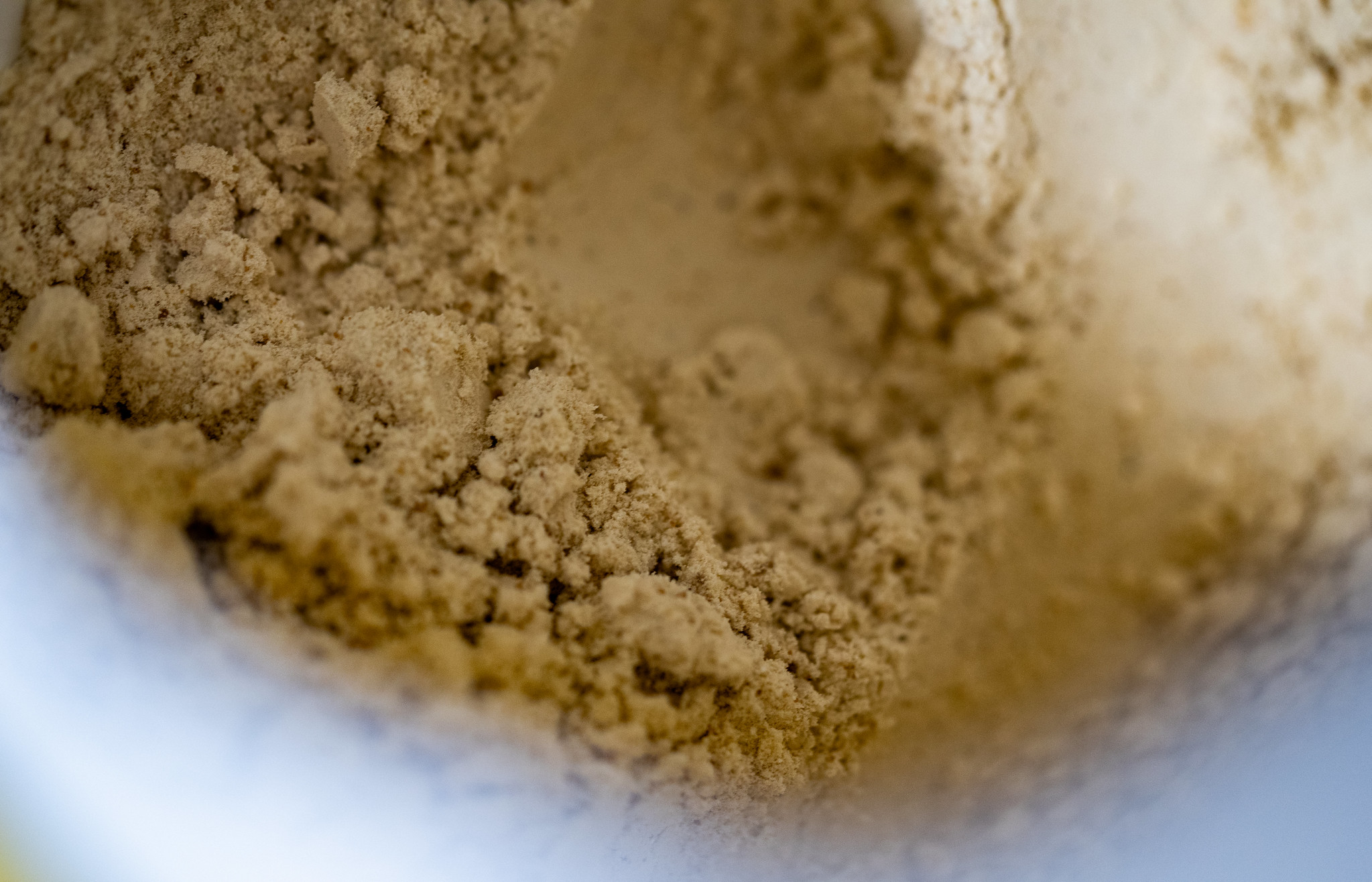
Maybe!
If you are strength training correctly and eating the right way, consuming enough protein will help you build muscle and perform better!
And “enough protein” can include protein supplements and protein powders.
Just remember that protein shakes are not a panacea for all of your ailments:
They are NOT required for being healthy, they MIGHT help you lose weight, and they should only SUPPLEMENT (zing!) a healthy diet, not be expected to do all the “heavy lifting.”
You still need to be eating well, following a strength training routine, and getting enough sleep.

But I bet you have WAY more questions about protein supplements, like:
- Should I go with whey protein?
- What about plant based protein?
- How do I make protein shakes NOT taste like drywall?
You can check out Part 2 of our protein series: “Ultimate Guide to Protein Shakes and Supplements.”
Protein and Strength Training: A Match Made in Heaven

Bringing it all together, protein is a crucial macronutrient whether you are trying to:
Now, in order for protein to get to work rebuilding your muscle…you need to strength train!
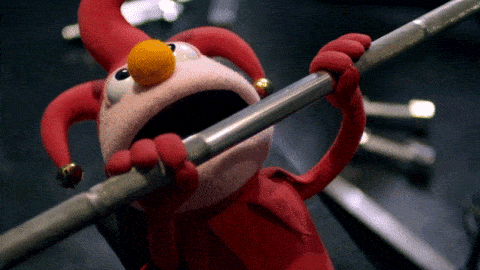
Essentially, your muscles get broken down when you strength train, and then the protein you’ve consumed gets to work rebuilding those muscles stronger. This burns extra calories and requires your body to divert more resources to the muscle building process.
In other words: your body will have a tendency to store fewer calories as fat, it’ll need to pull from fat stores to carry out bodily functions (if you’re losing weight), and rebuild your muscles stronger.
That’s a win-win-win!

If you are looking for more resources around strength training:
- Our Beginner Bodyweight Workout
- The 5 Best Beginner Strength Training Workouts
- 6 Beginner Gym Workouts: Never NOT know what to do again.
The tips outlined above will get you started with protein and strength training, but if you’re looking to go a bit further…
1) If you want step-by-step guidance on how to lose weight, eat better, and get stronger, check out our killer 1-on-1 coaching program:
#2) The Nerd Fitness Academy – This self-paced online course has helped 50,000 people get results permanently.
There’s a 10-level nutrition system, boss battles, 20+ workouts, and the most supportive community in the galaxy!
#3) Join The Rebellion! We have a free email newsletter that we send out twice per week, full of tips and tricks to help you get healthy, get strong, and have fun doing so.
I’ll also send you tons of free guides that you can use to start leveling up your life too:
Alright, I think that about does it for this guide.
-Steve
PS: Check out the rest of our protein series:
###
PHOTO SOURCES:[8]




